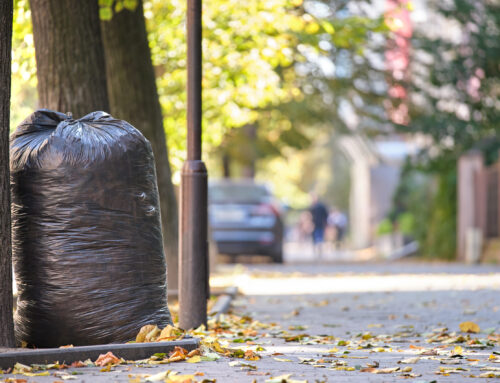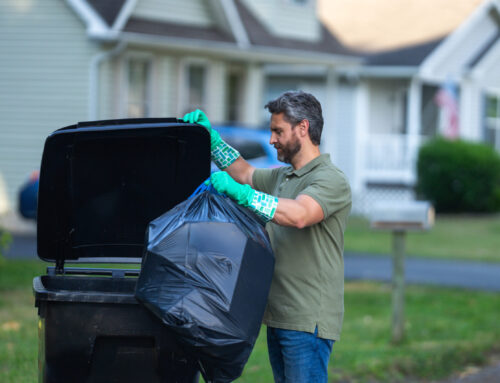
Sanitation services play a vital role in modern society, ensuring that waste is collected, processed, and disposed of in a way that minimizes environmental impact and promotes public health. As waste generation continues to increase globally, effective waste management is crucial to limit landfill overflow, reduce pollution, and conserve resources. By focusing on responsible waste disposal, recycling, and composting programs, sanitation services are actively helping communities reduce waste in various impactful ways.
This article explores the essential role sanitation services play in reducing waste, from encouraging recycling practices to managing organic waste through composting and promoting community awareness.
The Importance of Waste Reduction
Reducing waste is one of the most effective ways to lower pollution, conserve natural resources, and minimize greenhouse gas emissions. Excessive waste generation can result in overflowing landfills, polluted ecosystems, and significant public health risks due to toxic materials leaching into soil and water supplies. Waste reduction helps curb these issues by ensuring that materials are reused, recycled, or repurposed as much as possible rather than simply discarded.
Sanitation services are at the forefront of waste reduction efforts, providing the structure, tools, and guidance communities need to minimize the amount of trash sent to landfills and maximize sustainable practices.
How Sanitation Services Reduce Waste
Sanitation services employ a range of methods and technologies to reduce waste, making the entire waste management system more efficient and eco-friendly. Here are some of the key ways they do this:
Recycling Programs
One of the most effective ways sanitation services reduce waste is through comprehensive recycling programs. By collecting and processing recyclable materials, these programs prevent tons of waste from ending up in landfills each year. Recyclable materials like paper, plastic, glass, and metals can be reused in manufacturing, reducing the need to extract new raw materials and conserving energy.
Many sanitation services provide separate bins for recyclables, making it easy for residents to sort their waste. Some even offer curbside pickup, where recyclables are collected separately from general waste. Recycling programs are an accessible way for communities to contribute to waste reduction, and the environmental benefits of recycling are considerable. According to the Environmental Protection Agency (EPA), recycling one ton of paper saves over 17 trees, 7,000 gallons of water, and 3.3 cubic yards of landfill space.
Composting Initiatives
Sanitation services are increasingly incorporating composting programs to handle organic waste. Composting is the process of turning food scraps, yard waste, and other organic materials into nutrient-rich soil. By promoting composting, sanitation services reduce the amount of organic waste that would otherwise be sent to landfills, where it decomposes and produces methane—a potent greenhouse gas.
Many cities now offer curbside compost bins, similar to recycling bins, allowing residents to separate their organic waste from regular trash. This not only reduces landfill waste but also creates valuable compost that can be used to enrich soil for agricultural or landscaping purposes. Some sanitation services partner with local farms or community gardens, providing them with compost generated from collected organic waste.
Public Education and Community Awareness
Educating communities about the importance of waste reduction is another vital role of sanitation services. Many sanitation departments host workshops, provide informational materials, and collaborate with schools to teach residents how to reduce waste at the source. Awareness campaigns emphasize the benefits of reducing, reusing, and recycling, encouraging people to make conscious choices about the products they buy and the waste they generate.
Sanitation services often introduce people to strategies like minimizing single-use plastics, repairing items instead of discarding them, and choosing products with minimal or biodegradable packaging. These small changes can add up significantly over time, helping communities collectively reduce their waste footprint.
Waste-to-Energy Programs
In addition to recycling and composting, some sanitation services participate in waste-to-energy (WTE) programs, which convert non-recyclable waste into usable energy. WTE plants burn waste at high temperatures to generate electricity or heat, reducing the volume of waste that ends up in landfills. While waste-to-energy is not without environmental impact, it is a preferable alternative to landfill disposal for non-recyclable waste, especially in areas with limited landfill space.
This process not only helps to reduce the physical volume of waste but also provides an additional source of renewable energy. Some sanitation services prioritize WTE as a final disposal option for waste that cannot be composted or recycled, maximizing resource recovery and reducing landfill use.
Hazardous Waste Disposal
Proper handling and disposal of hazardous waste, such as electronics, batteries, chemicals, and medical waste, is another critical aspect of waste reduction. Hazardous materials can be extremely harmful to both human health and the environment if not managed properly. Sanitation services often organize specific collection days or provide drop-off locations for hazardous waste, ensuring that these items are handled safely and responsibly.
By diverting hazardous waste from landfills and encouraging safe disposal practices, sanitation services reduce the risk of contamination in soil, water, and air. This specialized handling of toxic materials contributes to a safer environment and protects public health.
Supporting Circular Economy Practices
The circular economy is an approach to production and consumption that prioritizes the continuous use of resources. It emphasizes reducing waste by reusing, repairing, recycling, and refurbishing materials to create a closed-loop system. Sanitation services play a key role in supporting circular economy practices by partnering with recycling facilities, promoting repair programs, and providing collection points for reusable items.
In some cities, sanitation services organize community events where residents can donate gently used items, exchange goods, or participate in repair workshops. These initiatives keep products in use for longer, reducing the demand for new resources and helping to lower overall waste generation.
How Communities Can Support Waste Reduction
While sanitation services offer many resources to help reduce waste, communities can also play a part in making these programs successful. Here are some steps individuals and families can take to support waste reduction efforts:
Sort Waste Properly
Proper sorting of recyclables, compost, and trash makes the collection and processing of waste more efficient and effective.
Use Reusable Products
Choose reusable bags, bottles, and containers over single-use options to reduce the amount of waste generated.
Participate in Local Programs
Get involved in local recycling or composting programs and attend community workshops or clean-up events organized by sanitation services.
Compost at Home
Home composting is an excellent way to manage organic waste while creating nutrient-rich soil for plants.
Support Policies and Initiatives
Encourage local policies that support waste reduction and resource conservation, such as bans on single-use plastics or incentives for recycling.
Innovations in Waste Reduction
As environmental awareness grows, so does innovation in waste management. Many sanitation services are exploring advanced technologies to further reduce waste and minimize environmental impact. Innovations like smart bins equipped with sensors, robotic sorting systems at recycling facilities, and bioplastics made from natural materials are transforming how we think about waste.
As communities and sanitation services work together to improve waste management practices, the future looks promising for waste reduction. By investing in these technologies and educating residents, sanitation services are setting the foundation for a cleaner, greener, and more sustainable world.
Partner With Us Today!
Sanitation services are essential to reducing waste and promoting sustainability in modern society. Through recycling programs, composting initiatives, public education, and responsible hazardous waste disposal, these services make it easier for communities to adopt waste-conscious practices. Waste reduction is a shared responsibility, and with the support of efficient sanitation services, individuals can make more environmentally friendly choices that lead to a healthier planet. By working together with AAA Sanitation & Garbage Removal, we can continue to reduce waste, conserve resources, and create a cleaner, greener world for generations to come.
AAA Sanitation & Garbage Removal
79 Business Dr Ste A
Hull, GA 30646
(706) 543-7788
https://aaasanitationco.com/






Leave A Comment